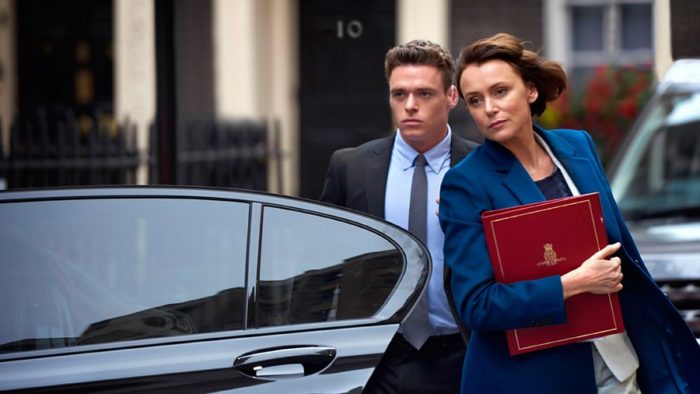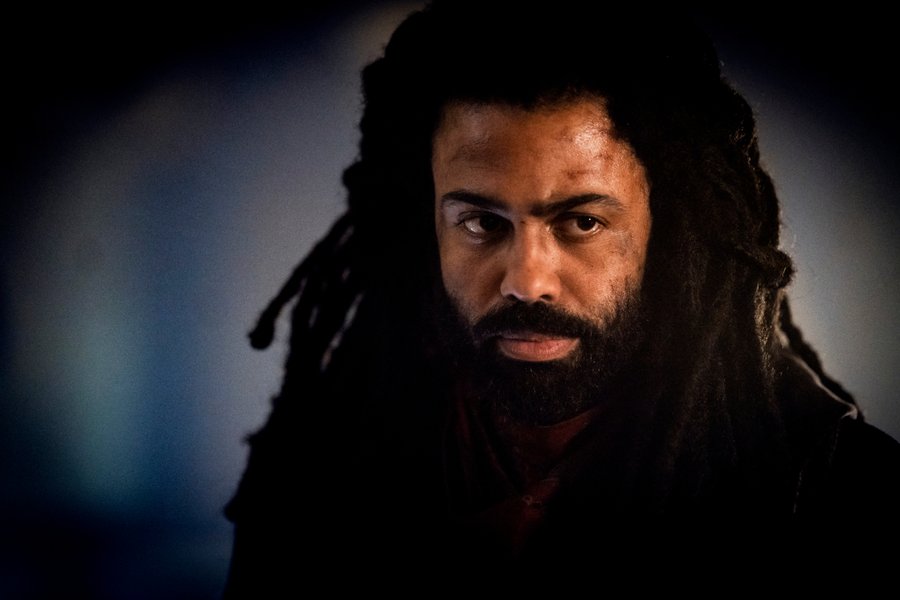BBC: Bodyguard got more viewers than The Crown
David Farnor | On 09, Mar 2019
BBC Director-General Tony Hall has said that Bodyguard got more viewers than Netflix’s The Crown.
Netflix has always been famously guarded about its viewing figures, but in recent months, the streaming giant has started to release small facts and statistics, to emphasise the scale and popularity of its global content. Those comments, though, have ruffled feathers among traditional broadcasters, with FX and NBC previously calling into question the accuracy of those figures, and how exactly Netflix counts a “view” from a subscriber.
Now, the Beeb’s boss has also responded, highlighting the corporation’s own successful viewing figures, both linear and on-demand. Speaking this week at the Media & Telecoms Conference, Hall noted that Bodyguard reached 17 million people with its finale last September, while Killing Eve racked up a whopping 45 million requests on BBC iPlayer. (You can read more about BBC iPlayer’s record-breaking 2018 here.)
The 17 million Bodyguard views was in one month, noted Hall. “Our data suggests The Crown reached 7 million users in 17 months,” he added.
Hall’s comments came as he highlighted the unique way the BBC can combine linear and on-demand distributing, as well as capitalise on both the corporation’s new programming, focusing on British issues and interests, and its vast, unique archive of content.
Indeed, the Beeb has increasingly been releasing box sets of former series, such as Peaky Blinders, Our Girl and Luther, online to complement current seasons. With Luther, 18 million views were racked up across previous seasons, which returned to BBC iPlayer ahead of Season 5’s release. The new season, meanwhile, averaged almost 10 million viewers per episode across linear TV and iPlayer, making it BBC One’s third most successful drama of recent times.
The statistics arrive as the BBC is looking to improve and expand its online reach to battle with rivals such as Netflix and Amazon Prime Video.
“It’s 11 years since iPlayer went live. Back then it blazed a trail. Today it’s still one of the country’s biggest and most recognised brands. But it’s a sign of how quickly things have changed that – while our audiences love the quality and brilliance of our content – they now expect more than just catch up,” he added.
Part of the plans is to make programmes available for at least 12 months after they’re first shown, some of those as multi-season box sets.
“This means more value for the licence fee,” said Hall. “And we know it’s what audiences expect. 19 million of our Killing Eve requests came before it was broadcast. So did 5 million of the 12 million requests for Peter Kay’s Car Share.”
Older series, too, will be a focus for more binge-friendly releases.
“Our Christmas boxset releases proved what an appetite there is for our classic television. 7 million of nearly 60 million requests were for titles over 10 years old,” he noted. “And the first 10 series of Doctor Who have seen over 25 million requests in the last six months.”
His comments also arrive as the BBC and ITV are planning to team up for a new paid-for subscription service, BritBox, which will feature content from both broadcasters’ archives. That kind of Public Service Broadcaster partnership, though, highlights the way in which the industry needs to change and grow to see off competition from services such as Netflix. Indeed, Hall is calling for changes to be made to regulation to allow for that evolution.
“If we need to change and adapt to a new global, digital marketplace, so does the regulation around us,” he continued. “The landscape in which we operate has changed beyond all recognition over the past decade. But our regulation has stayed largely the same. We are operating a linear framework in an on-demand world. If we want PSB to continue to be relevant in the next 10 to 20 years, and to thrive at the heart of a uniquely powerful media ecology, we have to support it.”
And therein lies perhaps the source of the BBC’s jab at Netflix, as the Beeb continues to face budget cuts – the corporation has reduced overheads to industry-leading levels of just 6%, to spend as much of its funding on content as possible – in a sea of cash-splashing rivals.
“Analysts estimate that Netflix spent as much as $13 billion on movies and shows last year. Amazon has a content spend of around $5 billion. They’re reportedly setting aside a reported $1 billion for five series of Lord of the Rings. Disney has a $100 million budget for a single series of Star Wars,” said Hall. “The BBC’s TV content spend taken altogether is around £1.5 billion across a whole year.”
“It can’t be right that – as Ofcom themselves have pointed out – the same programme can be regulated in half a dozen different ways in the UK, depending on who’s hosting it,” he concluded. “And all this needs to happen at pace, so PSBs can respond in real time. Remember, Netflix updates its app weekly. With no hold up and no regulatory approval.”
Bodyguard, which premiered on Netflix in the US, arrives on Netflix UK on 23rd March 2019. Read our review here.




















